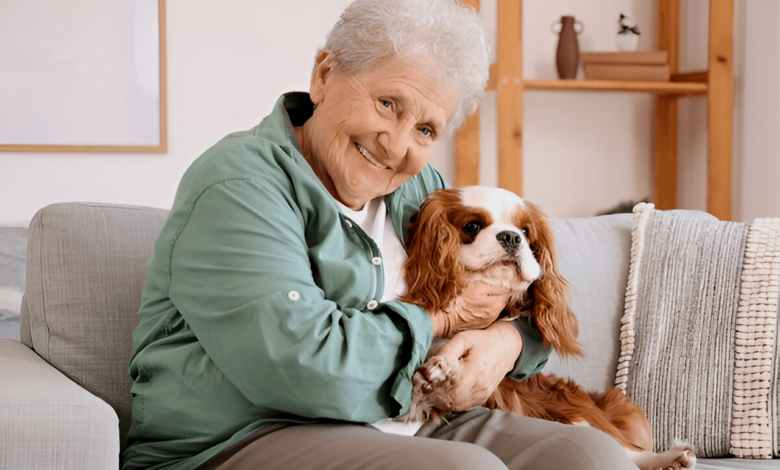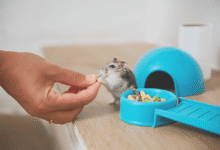
Senior Pet Care: How to Keep Aging Pets Happy & Healthy
Senior pet care tips to keep aging pets happy and healthy. nutrition, exercise, grooming, and managing chronic conditions for your senior dog or cat.
As pets age, their needs change, and it becomes essential for pet owners to adapt their care routines to ensure their furry companions remain happy and healthy. Senior pet care involves understanding the physical, emotional, and mental changes that come with aging and taking proactive steps to address them. From dietary adjustments to regular veterinary check-ups, there are numerous ways to support your aging pet’s well-being. This article will explore the key aspects of senior pet care, offering practical tips and insights to help you provide the best possible quality of life for your beloved pet during their golden years.
Caring for an aging pet is a rewarding yet challenging responsibility. As pets grow older, they may experience a decline in mobility, changes in appetite, and an increased risk of health issues such as arthritis, diabetes, or cognitive decline. However, with the right care and attention, you can help your senior pet thrive. This comprehensive guide will cover everything from nutrition and exercise to mental stimulation and emotional support, ensuring that your pet enjoys their later years to the fullest.
Understanding the Aging Process in Pets
The aging process in pets varies depending on their species, breed, and size. Generally, dogs and cats are considered seniors once they reach the age of seven, though larger dog breeds may age faster. As pets grow older, their bodies undergo significant changes. Their metabolism slows down, their immune system weakens, and they may develop chronic conditions such as joint pain, vision loss, or dental issues. Recognizing these changes early is crucial for providing effective care.
Regular veterinary visits are essential for monitoring your pet’s health. Senior pets should have check-ups at least twice a year to detect any potential issues before they become serious. Blood tests, dental exams, and screenings for common age-related diseases can help your vet create a tailored care plan for your pet. Early intervention is key to managing conditions like kidney disease, heart problems, or arthritis, which are more prevalent in older pets.
Nutrition for Senior Pets
A balanced diet is one of the most important aspects of senior pet care. As pets age, their nutritional needs change. They may require fewer calories due to decreased activity levels, but they still need high-quality protein to maintain muscle mass. Look for senior-specific pet food formulas that are designed to support joint health, digestion, and overall vitality.
Supplements can also play a role in supporting your pet’s health. Glucosamine and chondroitin are commonly recommended for joint health, while omega-3 fatty acids can help reduce inflammation and support cognitive function. Always consult your veterinarian before introducing any supplements to your pet’s diet.
Hydration is another critical factor. Older pets are more prone to dehydration, so ensure they have access to fresh water at all times. Wet food or adding water to dry kibble can also help increase their fluid intake.
Exercise and Mobility
While senior pets may not be as active as they once were, regular exercise remains important for maintaining their physical and mental health. Low-impact activities like short walks, gentle play sessions, or swimming can help keep their joints flexible and their muscles strong. Be mindful of your pet’s limitations and avoid overexertion.
For pets with mobility issues, consider investing in ramps, orthopedic beds, or joint-supporting harnesses. These tools can make it easier for your pet to move around and reduce the strain on their body. Physical therapy or acupuncture may also be beneficial for pets with chronic pain or arthritis.
Mental Stimulation and Emotional Support
Mental stimulation and emotional support are crucial components of senior pet care, as aging pets often face cognitive decline and emotional changes. Just like humans, older pets can experience conditions such as dementia or cognitive dysfunction syndrome, which may lead to confusion, anxiety, or changes in behavior. To keep their minds sharp, incorporate activities that challenge their cognitive abilities, such as puzzle toys, interactive games, or simple training exercises. These activities not only provide mental engagement but also help strengthen the bond between you and your pet. Additionally, introducing new toys or rotating existing ones can prevent boredom and keep your pet curious and engaged.
Emotional support is equally important for senior pets, as they may become more dependent on their owners for comfort and reassurance. Aging pets often seek more attention and may display signs of anxiety or loneliness. Spend quality time with your pet, offering gentle affection, soothing words, and a calm presence. If your pet shows signs of stress or depression, such as withdrawal or changes in appetite, consult your veterinarian for guidance. Creating a predictable routine and maintaining a peaceful environment can also help your pet feel secure. By providing both mental stimulation and emotional support, you can help your senior pet navigate the challenges of aging with confidence and contentment.
Managing Chronic Health Conditions
Managing chronic health conditions is a critical aspect of senior pet care, as aging pets are more susceptible to long-term illnesses such as arthritis, diabetes, kidney disease, and heart problems. Early detection and consistent management are key to ensuring your pet’s comfort and quality of life. Regular veterinary check-ups, including blood tests, urine analysis, and diagnostic imaging, can help identify these conditions in their initial stages. Once diagnosed, your veterinarian can create a tailored treatment plan that may include medications, dietary adjustments, and lifestyle changes. For example, pets with arthritis may benefit from joint supplements, pain relievers, and low-impact exercises, while those with diabetes might require insulin injections and a carefully monitored diet.
In addition to medical interventions, pet owners play a vital role in managing their senior pet’s chronic conditions. Administering medications as prescribed, monitoring symptoms, and maintaining a consistent routine are essential for keeping these conditions under control. For pets with mobility issues, providing ramps, orthopedic beds, or non-slip mats can make their daily lives easier and more comfortable. It’s also important to stay vigilant for any changes in behavior or health, as these could indicate a need for adjustments in their treatment plan. By working closely with your veterinarian and staying proactive in your pet’s care, you can help manage their chronic conditions effectively, allowing them to enjoy their golden years with minimal discomfort and maximum happiness.
Creating a Comfortable Environment
Creating a comfortable environment is essential for ensuring the well-being of senior pets, as they often become more sensitive to their surroundings and may struggle with mobility or sensory changes. Start by providing a cozy and easily accessible resting area, such as an orthopedic bed or a soft blanket, to support their joints and reduce pressure points. Place their bed in a quiet, draft-free location where they can relax undisturbed. For pets with mobility issues, consider adding ramps or steps to help them access furniture or elevated areas without straining themselves. Non-slip mats or rugs can also prevent slips and falls, especially on hardwood or tile floors, making it easier for your pet to move around safely.
In addition to physical comfort, consider your pet’s sensory needs as they age. Older pets may experience vision or hearing loss, so keeping their environment consistent and predictable can help reduce confusion and anxiety. Avoid rearranging furniture or introducing sudden changes to their living space. Nightlights can be particularly helpful for pets with vision problems, allowing them to navigate their surroundings more easily in the dark. Ensure that food, water, and litter boxes are easily accessible and placed in familiar locations. By creating a safe, comfortable, and stable environment, you can help your senior pet feel secure and content, allowing them to enjoy their golden years with peace of mind.
The Importance of Grooming
Grooming plays a vital role in maintaining the health and comfort of senior pets, whose grooming needs often change as they age. Regular brushing helps remove loose fur, prevent matting, and distribute natural oils, keeping their coat healthy and shiny. For older pets with arthritis or mobility issues, gentle brushing sessions can also serve as a soothing massage, improving circulation and reducing stiffness. Pay special attention to areas that are prone to tangles or irritation, such as behind the ears, under the legs, and around the tail. Additionally, trimming your pet’s nails is essential, as overgrown nails can cause discomfort or even affect their gait, especially for pets with joint problems.
Dental care is another crucial aspect of grooming for senior pets, as they are more susceptible to dental issues like gum disease and tooth decay. Regular brushing with pet-safe toothpaste can help prevent plaque buildup and maintain oral health. If your pet is resistant to brushing, consider dental treats or water additives designed to reduce tartar. Ear cleaning is also important, as older pets may be more prone to ear infections due to weakened immune systems. Finally, keep an eye out for any unusual lumps, bumps, or skin changes during grooming sessions, as these could indicate underlying health issues. By incorporating regular grooming into your senior pet’s routine, you can help them stay clean, comfortable, and healthy throughout their golden years.
Read More: Benefits of Exercise for Senior Pets
Conclusion
Caring for a senior pet is a deeply rewarding experience that requires dedication, love, and a proactive approach to their changing needs. As pets age, they rely on their owners more than ever to ensure their comfort, health, and happiness. By focusing on proper nutrition, regular exercise, mental stimulation, and emotional support, you can help your aging companion navigate their golden years with grace and dignity. Remember, small adjustments to their daily routine and environment can make a significant difference in their quality of life. The bond you share with your pet only grows stronger as you provide them with the care and attention they deserve during this stage of their life.
As you embark on this journey of senior pet care, take the time to cherish every moment with your furry friend. While aging may bring challenges, it also offers an opportunity to celebrate the years of joy and companionship they have given you. By staying attentive to their needs and working closely with your veterinarian, you can ensure that your pet’s later years are filled with comfort, love, and happiness. The effort you put into caring for your senior pet is a testament to the unconditional love they have shown you throughout their life, and it is a beautiful way to honor the special bond you share.
FAQs
When is a pet considered a senior?
Pets are generally considered seniors at around seven years of age, though larger dog breeds may age faster.
What are common health issues in senior pets?
Common issues include arthritis, dental problems, kidney disease, diabetes, and cognitive decline.
How can I help my senior pet stay active?
Low-impact exercises like short walks, gentle play, or swimming can help maintain mobility and strength.
What should I feed my senior pet?
Senior-specific pet food formulas that support joint health, digestion, and overall vitality are ideal.
How often should I take my senior pet to the vet?
Senior pets should have veterinary check-ups at least twice a year to monitor their health and detect any issues early.







